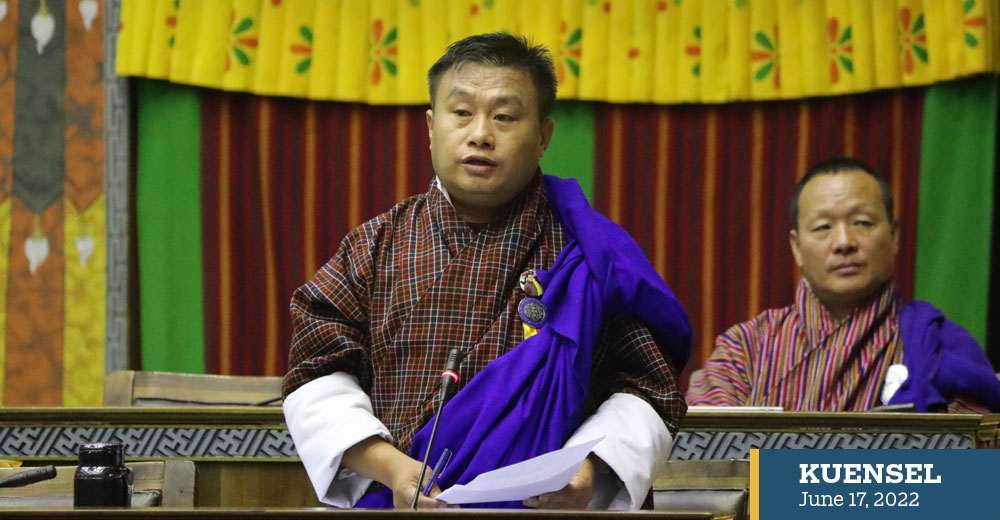Dechen Dolkar
The National Assembly passed the economic and finance committee’s (EFC) recommendation asking the government to take up the prevailing high loan interest rate issue with the Royal Monetary Authority (RMA) to facilitate private sector borrowings and boost the economy, yesterday.
The House decided and asked the committee to put it as an additional recommendation while discussing the industry and service sectors where the private sector requires further support through policy interventions.
The EFC chairperson, Kinga Penjor said with the prevailing high interest rates those in the private sector couldn’t avail of loans. “On the other hand, banks have excess liquidity.”
He said that though the central bank does not dictate the interest rates of the banks; they set the minimum benchmark of lending rates, which means the bank cannot lend below the benchmark.
“The individual banks set the interest rates,” the MP said.
According to a budget report of FY 2022-23 excess liquidity stands at Nu 39.88 billion as of March this year.
Kinga Penjor said that in 2015 the excess liquidity was mostly of foreign reserves standing at around Nu 15M to Nu 20M. However, the current excess liquidity is from the domestic budget only.
Further, the committee recommended rationalising the collateral values estimated by financial institutions for the same land.
Kinga Penjor said that it was also observed that those individuals borrowing for the first time from the banks get a loan amount of 50 percent of their collateral value. If borrowers have already taken out a loan with the banks and have a good credit portfolio, they get up to 70 percent of their collateral value.
The chairperson said that the collateral value differs from individual banks for the same property. “Their valuation price is also very less as compared to the market price. If they could make it the same as market value,” he said.
Athang-Thedtsho MP Kinley Wangchuk said that local banks are earning huge profits.
He said that if the corporate banks could regulate and decrease the interest rates the private banks will also follow suit. Many people claim that the banks are syndicated for not reducing the interest rates. “If the government could look into the matter, it will benefit the economy.”
Opposition Leader (OL) Dorji Wangdi said that with excess liquidity, the government should ease access to finance for the private sector with a conducive private sector development policy instead of the government using the excess liquidity.
The OL said that though the interest rates have decreased five years ago and benefited, there is still a possibility of decreasing the interest rate. In some countries, the interest rate ranges from 3 to 4 percent and even some have less than one percent.
He said that with high interest rates, people are unable to repay loans leading to more non-performing loans.
However, Finance Minister Namgay Tshering said that there was no correlation between access to finance and the high interest rates. To have access to finance, borrowers required collateral and individual banks have different valuations of the assets.
“Government is making asset valuation uniform for all the banks,” Lyonpo said
Lyonpo said that in the current scenario, it should focus on business viability and facilitate the businesses after taking loans rather than focusing on decreasing the interest rates.
During the pandemic, the government provided Nu 5B as working capital at 5 percent interest rate for businesses.
Lyonpo said that institutions provide loans from Nu 5M to Nu 10M for individuals.
“For those taking Nu 5M loans, the interest rate is 19 percent. The risk of repayment is very low, this is because banks support and facilitate the business after taking loans,” Lyonpo said.


